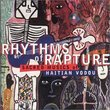| All Artists: Anton Bruckner, Bernard Haitink, Royal Concertgebouw Orchestra Title: Bruckner: The Symphonies [Box Set] Members Wishing: 0 Total Copies: 0 Label: Philips Original Release Date: 1/1/1960 Re-Release Date: 10/11/2005 Album Type: Box set Genre: Classical Style: Symphonies Number of Discs: 9 SwapaCD Credits: 9 UPC: 028947567400 |
Search - Anton Bruckner, Bernard Haitink, Royal Concertgebouw Orchestra :: Bruckner: The Symphonies [Box Set]
![Bruckner: The Symphonies [Box Set]](https://nationalbookswap.com/cd//l/06/1206/6131206.jpg) | Anton Bruckner, Bernard Haitink, Royal Concertgebouw Orchestra Bruckner: The Symphonies [Box Set] Genre: Classical
|
Larger Image |
CD DetailsSimilar CDs
|
CD ReviewsShipshape, predictable and reliable Larry VanDeSande | Mason, Michigan United States | 05/15/2006 (3 out of 5 stars) "This box of Bruckner symphonies, recorded from 1960-72 in Holland, was rereleased in 2005 with many outlets offering it at vastly reduced cost from the $72 list price. These were recorded during Haitink's halcyon days as director of the Concertgebouw Orchestra, when, in my opinion, he did his best and most reliable work in the recording studio. These performances include Bruckner's "Nulte" symphony, the so-called Symphony No. 0, and the traditional nine symphonies in varying arrangements. Haitink plays the original versions of Symphonies 0-4 and the first version of the titanic Symphony No. 8. What I like about these performances is Haitink's unaffected way with the music and how it allows you to hear Bruckner's progression as a symphonist when you listen to them in their numeric order. As he showed in his set of Shostakovich symphonies recorded a decade after these, Haitink can be a reliable guide through any composer's music. He shows himself a very reliable guide here. What he also shows himself to be in this set is somewhat unimaginative and hidebound by his literalism. For this reason, these performances, good as they are, will probably never be any Bruckner fans' No. 1 rated performance in any of the symphonies. Conductors that made names for themselves in this music usually did so because of the unique way they communicated the music -- Furtwangler was very idiosyncratic, unique and exciting; Karajan was highly charged and Germanic; Wand was very spiritual; Jochum dabbled with tempo and mysticism; Tintner used new performing scores; Solti was too virtuosic and forced the music to become something it wasn't. How does Hatink fits into this universe of expert Bruckner interpreters? I don't think he does. I think he plays the music straight all the time. For that reason it always sounds honest and forthright and the wonderful ADD recordings allow you to hear every mellifluous sound from the august Concertgebouw. But there is a decided lack of individuality in these recordings. This was a trademark of Haitink's recordings with this orchestra during this period, when he made his name worldwide. The 1960s were indeed a time for orchetral literalists to shine. Coming off the era of orchestral dabblers like Stokowski and Furtwangler, world opinion in the 1960s was divided into two camps of classical music performance -- literalism, headed by the likes of Reiner, Szell, Karajan and Haitink; and humanism, whose principal spokesperson was Bruno Walter who died in early 1962 and left behind a spate of wonderful-sounding records that have since been converted to CD in the digital era. While there was still a lot of nostalgia for old times, it was clear literalism was leading the world stage in the 1960s and setting the standard for performance of classical music -- very much like period performance practice has swept into style today. This is the ethos Haitink represents and that representation is never more evenly displayed than in this set of Bruckner symphonies. While they are uniformly well-played, sound uniformly wonderful, and are uniformly well-directed by the conductor, you can also say they are uniformly risk free and uniformly without the stamp of personality. Is that a bad thing? No, it simply puts this set at a disadvantage against the bigger names whose Bruckner sets are still in print. I think of this set as being the ultimate backup to my favorite Bruckner recordings (see my Listmania list). In a baseball metaphor, I think of the Haitink recordings as the perfect backup to my starters, the perfect relief pitcher when my starter tires, and the perfect pinch hitter when I tire of hearing my favorite versions. I know Haitink will come in during this backup situation and deliver the goods for me. But I also know that, even given the wonderful truthful recocrdings and uniform approach, he'll never be good enough to be the starter, either. One note: in my box, the disk labeled Symphony 4 actually contained someone's rap music. I know this wasn't Bruckner since he died almost a century before the invention of rap!" Unbelieveable recordings of the complete Bruckner Symphonies Daniel L. Ayala | Columbia, SC United States | 04/10/2006 (5 out of 5 stars) "Upon buying this set, I was struck by the recording engineering of this cycle. I thought I was listening to digital recordings, and was FLOORED when i discovered that these symphonies were recorded from 1960-1972. The sound is so crystal clear and so evenly recorded across all sections of the orcherstra that I contend over and over it was as if you was listening to a modern Chailly, Harnoncourt, or Barenboim recording. Just on sound alone - i would put this above and beyond Jochums EMI cycle with the Dresden Staatskapelle. The second item that struck me with this set was Haitink himself. I had no idea or dreamt that he could tackle a complete cycle of symphonies and produce holistically, a quality product. So many "boxed sets" or "cycles" are marred by good ones and bad ones. But these recordings are even over the 12 year span they were done. This is a true testament to a maestro and beautiful and disciplined Royal Concertgebouw Orchestra. The third thing I think about is in interpretation. Tempos that vary as the music builds - you'll never hear a more uptempo closing to the 8th in your life. I was shocked by an almost attempt by Haitink interpretively to throw back to the days of older conductors - styles of Furtwangler, Van Beinum, Knapperstbusch, ect. It sounded like he was paying homage to conductors of old but with updated sound. Lastly - the orchestral playing is very detailed, disciplined. Strings playing sweet, woodwinds sounding light, brass very strong (though a few wrong notes and muddy in recordings 7-9 in big climaxes - but nothing too severe), and the ability to actually hear timpani in every symphony - something quite important to move the music along during up tempo passages or to accent the power of the brass sections - often not brought out in older recordings. Something interesting that I would implore everyone to take note of... I now have 2 recordings of the 9th with Haitink - this early 1960 which is in the set and a 1981 digital recording with the same orchestra. Of the 14 other recordings I have of the 9th by Barenboim, Bernstien (1969 and 1990), Celibidache, Chailly, Giulini, Jochum, Karajan (1966 and 1975), Lopez-Cobos, Skrowaczewski, Tinter, Walter, and Wand - only the 2 Haitink recordings do not have the timpani player playing a role at the climax/finale of the 9th Symphony 1st movement, while instead playing a syncopated quarter/eight note rhythem (assuming thats the notation since I dont have access to a score). I find this fascinating and wondered why this was. At any rate - happy listening!!!! This is a wonderful set - highly recommended above Jochum and dare I say an import Karajan which I have." HAITINK'S EARLY BRUCKNER CYCLE Mark E. Farrington | East Syracuse, NY | 06/26/2006 (5 out of 5 stars) "This was my first Bruckner cycle (in its earlier black-box incarnation), and the date was October 11, 1996. Only while writing the check for it, did I remember that this day was the centennial of Bruckner's death. Say what you want, but it was a happy omen.
Back in college I had listened to some of these performances on LP, and wanted to get back to them. The first thing to emerge was how much better these CDs sound than those wretched, domestic 1960s Philips LPs. It was clear that until now, I hadn't really HEARD these performances...The Philips engineers (including the late Jaap von Ginneken) KNEW WHAT THEY WERE DOING. Thanks to their craftsmanship, we can relish the distinctive "tang" of the post-war Concertgebouw- that is, before the onset of the Post-Jet, Post-Karajan "International" Sound. It goes without saying that only the mediocre are equally good at everything- or even all the works within a given cycle. Haitink does better with some of these symphonies than others. Still, a newcomer to Bruckner could hardly go wrong with any of these performances, except maybe the 8th (more on that later). They are all FRESH- even the least successful of them. This is because Bernard Haitink & Philips wisely chose not to plow through the whole cycle within a year or so: they took their time- 9 years, in fact (1963-72). The "0" Symphony (June 1966) receives a truly sympathetic performance and recording. The Concertgebouw's woodwinds make a bittersweet feast of the more plaintive passages in the 2nd movement. And Haitink wisely plays the very opening "straight ahead," not trying to make the "nebulae" motifs as doom-laden or dramatic a Brucknerian "fingerprint" as they would become in the later symphonies. Still, everything comes off- in a work that often "goes for nothing." (Bruckner's VERY first Symphony, the F Minor "00," another work which often "goes for nothing," is not included in this box. Still, any true Brucknerian should have it, and the 1992 Inbal/Teldec does nicely.) The 1st (May 1972), actually the last to be recorded, is rather aggressive (i.e., in a good way), brimming with daring and "intestinal fortitude." This is hardly the "unimaginative" performance of which Haitink has too often (i.e., wrongly) been accused. I can't think of a greater 1st- although Jochum's 1968 Berlin 1st perhaps "ties" with it. The May 1969 2nd (Haas edition) may be the greatest performance in the box- and for my money the best 2nd ever recorded. In THE ESSENCE OF BRUCKNER, Robert Simpson points out the deleted 1872 passages which Haas restored to Bruckner's 1877 revision; he approves of all but one, in the second movment: the "repeat" of a solo-horn-and-woodwind passage, ending with a lone, climbing bassoon line. This performance is absolutely complete, but I think you would find it not a moment too long. Haitink and the Concertgebouw bring out such a subtle, "tangy" sheen in the strings, project such a purity of spirit, that they all seem to be possessed by the ghost of Eduard Van Beinum (who never recorded a Bruckner 2nd). In spite of characteristic "fingerpints" in the "00," "0," and the 1st, it was only in the 2nd that Bruckner really began to evolve his own kind of structure. (You might say that this stretch of symphonic territory, initially staked out by Schubert in his "Unfinished" & "Great," had been abandoned until Bruckner reached this point.) The October 1963 3rd (1878 edition) is actually the earliest recording in this box. (The 8th is from September 1969, not 1960, as an uncorrected typo would have it. ) Now, I confess a greater preference for the craggier, less "symmetrical" 1873 edition of the 3rd. (The 1982 Inbal/Teldec is superb, and so is the 2004 Nugano/Harmonia Mundi. Between them, the Nugano is a bit better played and recorded, but Inbal's grasp of pacing and structure is slightly more convincing: take your pick.) Still, if you must have the better-known 1878 edition, this performance is the one to have. It is far more fleet and unassuming than Haitink's rather lugubrious 1988 remake with the Vienna Philharmonic. This 1963 3rd was the first disc I took out of the box, and it pulled me in. The 4th (May 1965) is one of the best in stereo- but I can't help comparing it with the live 1956 Van Beinum 4th (also with the Concertgebouw). Somehow, EVB struck an even more convincing balance between grandeur and humility...As did Jochum in his 1954 Bavarian Radio 4th (only available through amazon's German site). Still, as an introduction to the 4th, you could do a lot worse. The 5th (December 1971) was also my introduction to THIS symphony. It struck me then (and it strikes me now) as just a bit too "serenely objective." This impression was confirmed when I finally tumbled onto EVB's live 1959 5th (his very last recording, by the way) and Jochum's 1964 5th - both with the Concertgebouw. Unfortunately, Jochum was convinced that 5th's Finale required extra brass...I haven't yet heard Jochum's live 1986 Concertgebouw Fifth, but the '64 (on Philips) is marred by some graceless, out-of-tune playing from those "extras." (So is Jochum's 1980 Dresden 5th on EMI.) With merely the "regular" Concertgebouw brass, Van Beinum achieves all the "intestinal fortitude" necessary in the Finale's coda - AND beautifully in tune. Still, in all fairness to Jochum, he had a uniquely exciting way with the 5th, which he believed to be Bruckner's greatest symphony. If you must have Jochum's 5th, go with his 1957 Bavarian Radio on DG. With its many potentially awkward transition points and "gear shifts" (at least in the outer movements), the 6th may be the toughest of Bruckner's nuts to crack. Rarely will you find a great conductor and a great orchestra (in the same hall at the same time- that's the catch) who UNDERSTAND this work. What we usually get is a 6th, played and conducted in light of the 4th, 5th, 7th or 8th and "Here's this odd thing of Bruckner's and let's a GO at it shall we." The Haitink 6th (December 1970) was, at first, my favorite. (At the risk of a well-aimed bolt of lightning, I find Klemperer's fabled 1964 6th a tad overrated; yes, it's excellent, but the Philharmonia, for all their collective genius, were NOT a Bruckner orchestra- compared to the Concertgebouw, the Berlin, the Bavarian Radio, or even Inbal's North German Radio. They just weren't.) Now, Haitink and the Concertgebouw inscribe an almost supernatural performance-even if the Finale is a little brisk. Still, it "works," and then some. But if you can find it, the 1969 Steinberg/Boston account grasps the 6th's "DNA" better than any other...What had seemed "quirky" and inconsequential becomes not only logical, but enchanting: an alpine village progression from late summer to Christmas Festival, if you like. The 7th (November 1966) is up against formidable competition. In terms of hi-fi alone, this includes Van Beinum's 1947 and 1953 Deccas (and yes, they are both "hi-fi"), and several by Jochum. My personal favorites: the 1947 EVB (in Dutton's transfer, which captures and enhances the original sound AND eliminates the infamous early Decca "ground hum" far better than the Tahra edition), and the surprisingly hi-fi 1952 Berlin Jochum (on Tahra, if you can find it)- one of those life-enhancing rarities which should be snagged-at-first-sight. Jochum's recently re-issued 1939 Vienna 7th (on Hanssler) has perhaps his most "trauerisch" second movement, but the Viennese turn in one of their sloppier performances; and the vague, rather undifferentiated articulation detracts from the momentum of the scherzo and the finale. Haitink's 1966 7th is indeed a convincing, beautifully rounded account, and you couldn't go wrong with it. Still, one can do better. The 8th (September 1969, not 1960) is the weak link in this "chain." Compared with Haitink's own later version of 1981, and next to Jochum's 1949 Hamburg or Karajan's early stereo 1957 (to name a few), it simply doesn't deliver the INNER drama and spirituality that a Bruckner 8th must-have-or-what's-the-point. It's played well enough, but I suspect that, in 1969, Haitink didn't yet have the measure of this work. (In time, he did- let it be said !) The 8th was my "first" Bruckner symphony (Karajan '57); I would not recommend this 1969 8th as anyone's "first." You might not be "put off," but unless you already knew the 8th, you would miss the CORE. The 9th (December 1965) is fantastic, and nearly ties with the 1956 Van Beinum 9th . Haitink takes the scherzo just a mite slower than Jochum and others (Furtwangler flogged it like an old-horse-ready-to-drop)- but this allows the unsettling harmonies to sink in, all the more exquisitely. The first movement and finale are riveting. This is a good introduction to the 9th. But Jochum's 1954 Bavarian Radio, EVB's 1956, Karajan's 1966 Berlin and Wildner's 1998 (with "realized" 4th movement- see my review) all convey a greater ontological intensity. So there you have it. You WILL need another 8th, but there are several hi-fi choices for that: Van Beinum's 1955; Haitink's 1981; any of Jochum's; Karajan's 1957 or 1989. Still, this box grants us nearly perfect performances of "0," 1, 2 and 3 (1878 edition); and can't miss, can't-go-wrong versions of 4, 5, 6, 7 and 9. " |

 Track Listings (7) - Disc #1
Track Listings (7) - Disc #1



